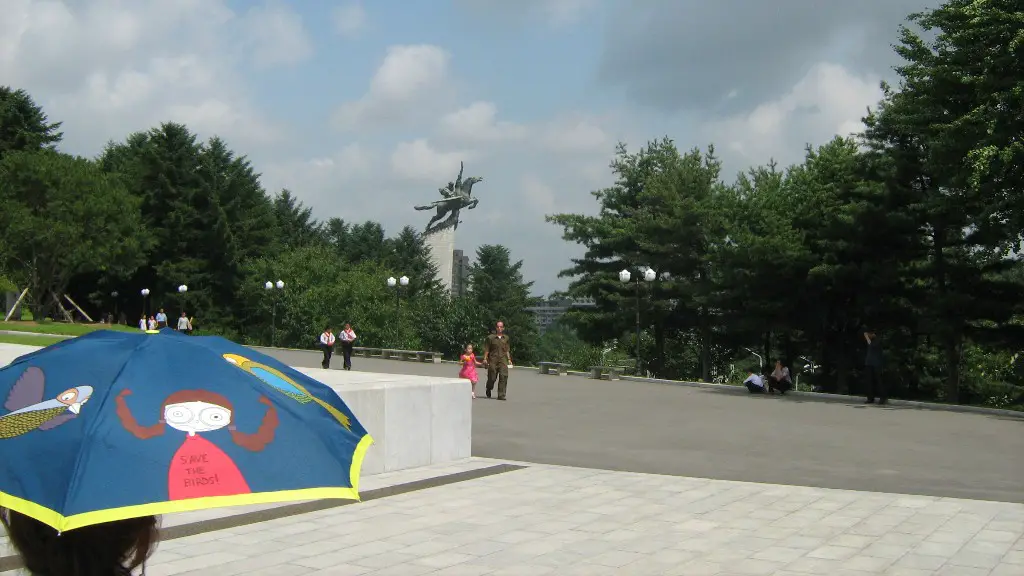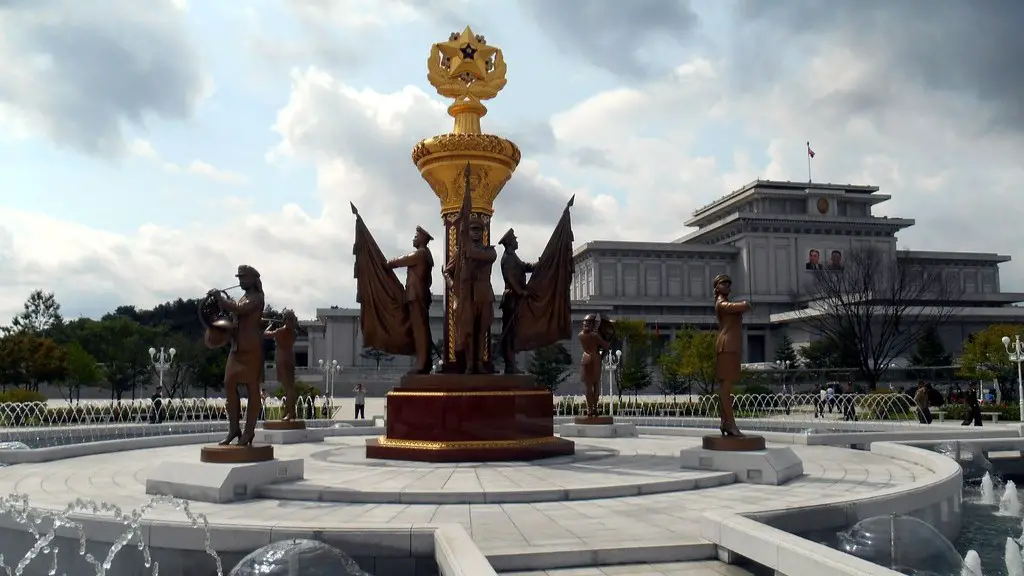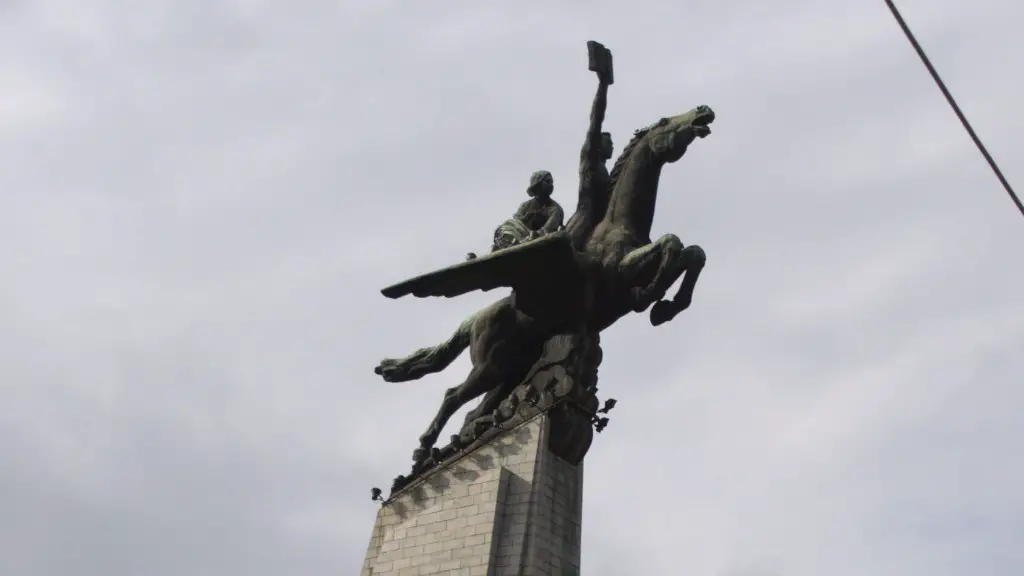Is North Korea Really That Strict?
North Korea is arguably one of the most strict and oppressive countries on the planet. Its regime is closely guarded and the regime is known to brutally suppress the voices of dissidents. This regime of control has been present since the regime’s first leader, Kim Il-sung, took power in 1948, and it has been steadily enforced and strengthened over the years. Such a level of control over its citizens means that North Koreans are subject to some of the most stringent laws of any country in the world. But just how strict is the regime in North Korea?
North Korea’s Legal System
North Korea does not have a robust system of civil and criminal laws, as other countries might. In fact, North Korea doesn’t even have a code of laws, instead relying solely on the personal decrees of its leader, Kim Jong-Un. This means that North Koreans have no protections in the civil court system, leaving them vulnerable to severe punishments if they breach the unwritten laws.
The most common punishments for crime in North Korea are labor camps and executions. Death sentences can be given for a range of offences, including corruption, counterfeiting and even watching foreign films. Labor camps are often used to incarcerate people who are charged with minor offences. These camps, known as “Kwan-li-so”, are notorious for their inhumane conditions and lack of basic facilities. Detainees in these camps are subjected to hard labor, starvation and psychological torture.
Oppression of Freedoms
The regime in North Korea suppresses its peoples freedom in many other ways. There is no freedom of speech or press in North Korea, and media outlets are strictly controlled by the state. The government also seeks to control what its citizens are exposed to and prohibited people from having access to the internet, nor are they permitted to watch foreign films, TV shows, or listen to foreign radio. Even more worrying, according to human rights groups, is the regime’s use of surveillance to keep track of the population.
North Korean Refugees
As a result of the oppressions noted above, many North Koreans have sought refuge in other countries. Since the 1990s, hundreds of thousands of North Koreans have fled to China, South Korea, Russia, and other countries in search of a better life. This has put a strain on many of these countries, as providing asylum to these refugees is an expensive endeavor and has sparked heated debate in many countries.
Living Conditions in North Korea
The living conditions in North Korea are much worse than those in other countries. The poverty rate is high, and the economy is largely stagnant. Food shortages and lack of access to healthcare has resulted in high rates of infant mortality and malnutrition. Propaganda and censorship of foreign media allow for the regime to go unchecked, and North Koreans remain largely unaware of any advancements or developments occurring in other parts of the world.
International Pressure on North Korea
Due to the extreme level of oppression and control in North Korea, it has come under increasing international pressure. The UN Human Rights Council placed sanctions on North Korea in 2016, condemning the regime’s human rights abuses and calling on them to tread more lightly. These sanctions were backed by the US, and other countries in the UN Security Council.
Despite this growing international pressure, the regime has refused to loosen their grip on the country. Kim Jong-un remains in power and continues to maintain a firm grip on the people of North Korea.
North Korea in Focus
The country of North Korea has been in the spotlight in recent years, and its oppressive regime is well known around the world. Despite this, North Korea is still one of the most closed off and isolated countries in the world, and its living conditions are much worse than those in other countries. It remains to be seen if the international pressure will be enough to force North Korea to loosen their grip, or if the regime will continue on its trajectory of oppression.
International Reactions to North Korea
The international reactions to the oppressive regime in North Korea have been largely negative, with many governments around the world, including the United States, calling for changes. However, it remains unclear what impact these calls will have on North Korea and its people. In particular, the United States, through its ‘maximum pressure’ campaign, has imposed economic sanctions in order to try to change the regime’s behavior. However, it remains to be seen whether this policy will have any positive effects or efforts.
North Korea and its Neighbors
The DPRK has become increasingly hostile towards its neighbors South Korea and Japan, and recent tensions between the two countries have been at an all-time high. In regards to South Korea, North Korea has been increasingly aggressive in response to South Korea’s increased focus on reunification with the North. Meanwhile, North Korea and Japan have been at odds for many years, and recent North Korean missile tests have only worsened relations.
The Power of the North Korean Regime
The North Korean regime is highly authoritarian, and it is almost impossible for the voices of the North Korean people to be heard. The regime remains highly powerful and oppressive, and it has been able to maintain its grip on power for many decades now. Despite the growing international pressure on the regime, it remains unclear as to how it will respond and whether it will make any internal changes, or simply double down on its oppressive activities.
North Korea and the International Community
Despite calls from the international community, North Korea has been unwilling to loosen its grip, leading many countries to call for a stronger international response. However, some nations have rejected sanctions as an effective policy, and many of the claims made by the international community have not been backed up by action. Some experts have argued that the power of the current regime must be overthrown if the peoples of North Korea are ever to be free.
The Future for North Korea
It remains to be seen what the future holds for North Korea and its people. North Korea is in a unique situation, and the international community has yet to effectively find a way to deal with the oppressive regime. It is likely that the situation will remain tense for some time to come, and it will likely take a concerted effort from the international community in order to make any substantial progress in regards to the North Korea issue.



